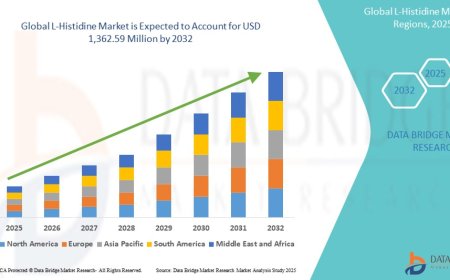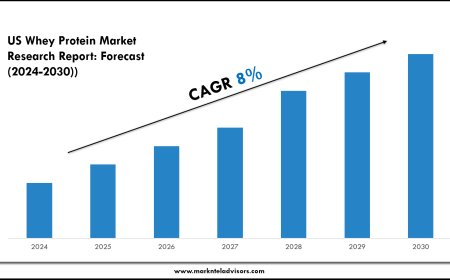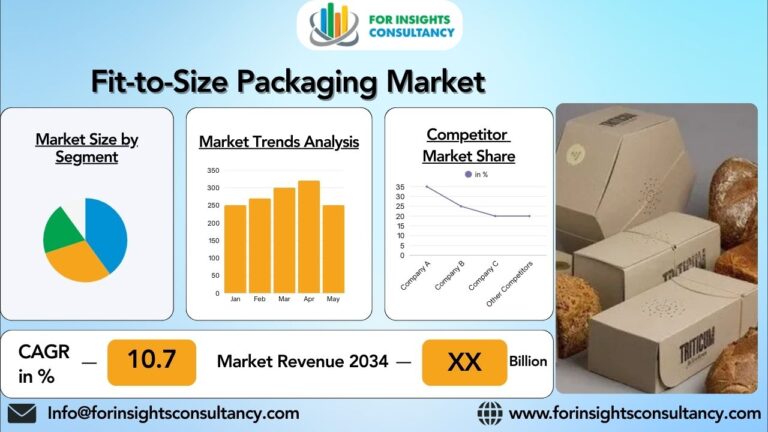how to check credit score
How to Check Credit Score: A Complete Guide to Understanding, Monitoring, and Improving Your Financial Health Your credit score is one of the most critical financial metrics that influences your ability to borrow money, secure favorable interest rates, rent an apartment, or even land certain jobs. Yet, despite its importance, many people remain unaware of their actual credit score—or worse, they a
How to Check Credit Score: A Complete Guide to Understanding, Monitoring, and Improving Your Financial Health
Your credit score is one of the most critical financial metrics that influences your ability to borrow money, secure favorable interest rates, rent an apartment, or even land certain jobs. Yet, despite its importance, many people remain unaware of their actual credit scoreor worse, they assume its too late to improve it. The truth is, checking your credit score regularly is not only simple, but essential for maintaining long-term financial stability. This comprehensive guide walks you through every step of how to check credit score, from understanding what it is and why it matters, to using the best tools, avoiding common pitfalls, and interpreting real-world examples. Whether youre rebuilding credit after a setback or aiming to qualify for a mortgage with the lowest possible rate, this guide gives you the knowledge and actionable steps to take control of your financial future.
Step-by-Step Guide
Checking your credit score is not a one-time taskits an ongoing practice that should be integrated into your financial routine. Below is a detailed, step-by-step breakdown of how to check your credit score accurately and effectively.
Step 1: Understand the Difference Between Credit Reports and Credit Scores
Before you begin, its vital to distinguish between your credit report and your credit score. Your credit report is a detailed record of your credit history, including loans, credit cards, payment history, inquiries, and public records like bankruptcies. It is compiled by three major credit bureaus: Equifax, Experian, and TransUnion. Your credit score, on the other hand, is a three-digit number derived from the data in your credit report. It represents your creditworthiness at a glance.
The most widely used credit scoring model is FICO, which ranges from 300 to 850. Another popular model is VantageScore, which also uses a 300850 scale. While the algorithms differ slightly, both models prioritize similar factors: payment history, credit utilization, length of credit history, new credit, and credit mix.
Step 2: Determine Which Score You Want to Check
Not all credit scores are created equal. Lenders may use different versions of FICO or VantageScore depending on the type of loan. For example:
- FICO Score 8 is the most common version used for general lending decisions.
- FICO Auto Score is tailored for auto loans.
- FICO Bankcard Score is used for credit card applications.
For personal monitoring purposes, checking your FICO Score 8 or VantageScore 3.0 is sufficient. These scores give you a reliable benchmark of your overall credit health. If youre preparing for a major loan application, such as a mortgage, its wise to check the specific score your lender uses.
Step 3: Use Free Credit Score Services
Many financial institutions and credit monitoring services offer free access to your credit score. Heres how to access them:
- Through your bank or credit card issuer: Many major banks (such as Chase, Bank of America, Wells Fargo) and credit card companies (like Capital One, Discover, and American Express) provide free FICO or VantageScore access to their customers. Log in to your online account and look for a section labeled Credit Score, Credit Monitoring, or Credit Health.
- Use free credit monitoring platforms: Websites like Credit Karma, Credit Sesame, and NerdWallet offer free VantageScore 3.0 from TransUnion and/or Equifax. These services update your score weekly and provide personalized insights into factors affecting it.
- Check through annualcreditreport.com: While this site doesnt provide your score directly, it gives you free access to your full credit reports from all three bureaus once every 12 months. You can review your reports for errors and then use a free score service to get your number.
Step 4: Request Your FICO Score Directly
If you want the exact score lenders use, consider purchasing your FICO Score directly from myFICO.com. FICO offers several packages:
- Single score purchase: $19.95 for one bureaus FICO Score 8.
- Triple bureau package: $59.95 for FICO Scores from all three bureaus.
- Monthly subscription: $19.95/month for ongoing access and credit monitoring.
While this isnt free, its the most accurate way to see the score lenders seeespecially valuable when youre preparing for a major financial decision.
Step 5: Check Your Score Through Mobile Apps
Many financial apps now include credit score tracking as a built-in feature. Examples include:
- Experian Mobile App: Offers free FICO Score 8 and credit report updates.
- Discover Credit Scorecard: Free FICO Score 8 for Discover cardholders and non-cardholders.
- MoneyLion: Provides VantageScore 3.0 and credit education tools.
These apps often send alerts when your score changes and provide tips for improvement based on your spending and payment behavior.
Step 6: Monitor Your Score Regularly
Once youve checked your score, make it a habit to review it at least once a month. Many services offer automatic updates, so set up email or app notifications. Monitoring helps you detect fraud early, track progress as you pay down debt, and prepare for upcoming credit applications.
Step 7: Interpret Your Score Correctly
Understanding your score range is key to knowing where you stand:
- 300579: Poor
- 580669: Fair
- 670739: Good
- 740799: Very Good
- 800850: Exceptional
A score above 700 is generally considered good and qualifies you for most credit products with reasonable rates. A score above 760 typically earns you the best interest rates on loans and credit cards.
Step 8: Review Your Credit Report Alongside Your Score
Always cross-reference your credit score with your credit report. Even if your score is high, errors on your reportsuch as accounts you didnt open, incorrect payment statuses, or outdated negative itemscan undermine your financial credibility. Use annualcreditreport.com to pull your reports and compare them with your score providers data.
Best Practices
Knowing how to check your credit score is only half the battle. To truly benefit from this knowledge, you must adopt smart habits that protect and improve your credit over time.
Check Your Score Consistently, Not Just When You Need Credit
Waiting until youre denied a loan to check your score is like waiting until your car breaks down to check the oil. Establish a routineset a calendar reminder for the first day of each month. Consistent monitoring helps you spot trends, such as gradual improvements from on-time payments or sudden drops from unauthorized activity.
Use Soft Inquiries Only When Checking Your Score
There are two types of credit inquiries: hard and soft. Hard inquiries occur when a lender checks your credit as part of a loan or credit application. Too many hard inquiries in a short period can lower your score. Soft inquiries, however, occur when you check your own score or when a lender pre-approves you for an offer. Soft inquiries do not affect your score.
Always use services that perform soft pulls. Avoid applying for multiple credit cards or loans within a few months just to shop around for the best scoreyoull risk damaging your credit with multiple hard inquiries.
Dont Rely on a Single Source
Each credit bureau collects slightly different information. One bureau may have a late payment recorded that the others dont. For the most accurate picture, check your score from at least two sources. If youre using Credit Karma (which pulls from TransUnion and Equifax), supplement it with a free FICO score from your bank or a one-time pull from myFICO.com.
Set Up Alerts for Major Changes
Most credit monitoring services allow you to set up alerts for score changes, new accounts, or inquiries. Enable these notifications. A sudden drop of 50+ points could indicate identity theft or a reporting error. Early detection means faster resolution.
Understand That Scores Fluctuate
Its normal for your credit score to go up and down slightly from month to month. A small dip after paying off a credit card doesnt mean youve failedit may reflect a change in your credit utilization ratio. Focus on long-term trends, not daily fluctuations.
Never Pay for Credit Repair Services That Promise Quick Fixes
There are countless companies that claim they can erase negative items from your credit report overnight. These are almost always scams. By law, you have the right to dispute inaccuracies yourself for free. If you have legitimate negative itemslike a late payment or collection accountthey can only be removed after seven years (or ten for bankruptcies). No service can legally remove accurate, timely information.
Use Credit Responsibly to Build Long-Term Strength
Checking your score is valuable, but its even more valuable when paired with responsible credit behavior. Pay all bills on time, keep credit card balances below 30% of your limit, avoid opening too many new accounts at once, and maintain a mix of credit types (installment loans, revolving credit). These actions naturally improve your score over time.
Review Your Score Before Major Purchases
Before applying for a mortgage, auto loan, or even a high-limit credit card, check your score at least 36 months in advance. If its lower than desired, youll have time to improve it. For example, paying down credit card balances can boost your score within one to two billing cycles.
Tools and Resources
A variety of tools and platforms are available to help you check your credit score accurately and efficiently. Below is a curated list of the most reliable, user-friendly, and secure resources.
Free Credit Score Platforms
- Credit Karma: Offers VantageScore 3.0 from TransUnion and Equifax. Provides detailed breakdowns of factors affecting your score, personalized offers, and credit-building tools. No credit card required.
- Credit Sesame: Provides VantageScore 3.0 from TransUnion. Includes a free credit report summary, identity theft protection alerts, and personalized loan recommendations.
- NerdWallet: Offers VantageScore 3.0 from TransUnion. Known for its educational content and comparison tools for credit cards and loans.
- Discover Credit Scorecard: Free FICO Score 8, updated monthly. Available to Discover cardholders and non-cardholders alikeno credit card needed to sign up.
Official Credit Report Sources
- annualcreditreport.com: The only government-authorized website for free annual credit reports from Equifax, Experian, and TransUnion. This is your legal right under the Fair Credit Reporting Act (FCRA). Do not confuse it with look-alike sites that charge fees.
- Equifax.com: Offers a free weekly credit report through 2026 due to a settlement agreement. Also sells credit monitoring and score services.
- Experian.com: Provides free credit report and FICO Score 8 via its free credit monitoring service. Also offers identity theft protection.
- TransUnion.com: Offers free weekly credit reports and VantageScore 3.0. Includes credit monitoring and fraud alerts.
Paid Credit Monitoring Services
- myFICO.com: The most authoritative source for FICO Scores. Offers all three bureau scores, credit report access, and score simulation tools to predict how actions (like paying off debt) will impact your score.
- IdentityForce: Premium credit monitoring with identity theft insurance, dark web surveillance, and credit score tracking from all three bureaus.
- Experian Boost: A free service that allows you to add utility and phone bill payments to your Experian credit report, potentially raising your FICO Score 8.
Mobile Apps for Credit Monitoring
- Experian Mobile App: Real-time score updates, credit report access, and fraud alerts.
- MoneyLion: Free credit score, credit-building loans, and financial coaching.
- Chase Credit Journey: Free FICO Score 8, credit education, and spending insights for Chase customers and non-customers.
- Wells Fargo CreditWise: Free VantageScore 3.0 from TransUnion with monthly updates and alerts.
Browser Extensions and Financial Dashboards
Some browser extensions and financial aggregators like Mint (by Intuit) and Personal Capital now include credit score tracking as part of their broader financial dashboards. While convenient, ensure these tools use secure, encrypted connections and do not store your login credentials unnecessarily.
Books and Educational Resources
To deepen your understanding of credit scoring, consider these authoritative resources:
- The Smart Money Woman by Arese Ugwu Practical advice on building wealth and credit in emerging economies.
- Your Credit Score: How to Improve the 3-Digit Number That Shapes Your Financial Future by Liz Pulliam Weston A comprehensive guide to understanding and improving your score.
- Consumer Financial Protection Bureau (CFPB) website: Offers free guides on credit reports, disputes, and scoring models.
- Federal Trade Commission (FTC) credit page: Official guidance on avoiding credit repair scams and understanding your rights.
Real Examples
Understanding credit scoring becomes much clearer when you see how it works in real-life situations. Below are three detailed case studies that illustrate how checking and improving your credit score can transform your financial outcomes.
Example 1: Maria Repairs Her Credit After Medical Debt
Maria, a 32-year-old teacher, had a credit score of 592 after a series of unpaid medical bills were sent to collections. She needed to refinance her car loan to lower her monthly payments. She began by pulling her free credit reports from annualcreditreport.com and discovered three collection accounts she hadnt known about.
She disputed one account that was reported twice and another that belonged to someone else. She also contacted the collection agency for the third and negotiated a pay-for-delete agreement, where she paid the balance in full and they removed the account from her report. Within four months, her score rose to 678.
With her improved score, she qualified for a new auto loan at 4.9% interest instead of 11.5%. She saved $2,100 over the life of the loan. Maria now checks her score monthly through Credit Karma and pays all bills on time.
Example 2: James Builds Credit from Scratch
James, a 20-year-old college student, had no credit history. He wanted to rent an apartment but was denied because landlords couldnt assess his reliability. He applied for a secured credit card with a $500 deposit and used it responsiblycharging only $50 per month and paying the balance in full.
After six months, he checked his score through Experians free service and saw it had risen to 680. He then requested a credit limit increase and was approved. He also added his rent payments to his Experian report using the Experian Boost tool, which added another 30 points.
Within a year, his score reached 725. He was approved for an unsecured credit card with a $1,500 limit and a 0% introductory APR. He now uses his card for small recurring bills and pays them off automatically each month.
Example 3: Lisa Prepares for a Mortgage
Lisa, 38, planned to buy her first home in 12 months. Her credit score was 710, but she knew she needed at least 760 to qualify for the best mortgage rates. She reviewed her credit report and found two credit cards with utilization rates above 60%.
She paid down $8,000 in credit card debt using a portion of her tax refund and avoided opening any new accounts. She also set up automatic payments to ensure no late payments occurred. After six months, her score climbed to 772.
When she applied for her mortgage, she was offered a 3.1% interest rate on a 30-year fixed loan. Had her score remained at 710, she would have paid 3.75%resulting in an extra $147 per month and $52,920 over the life of the loan.
Lisa continues to monitor her score monthly and has set a goal to reach 800 within two years.
FAQs
Can I check my credit score for free without a credit card?
Yes. Many services like Credit Karma, Credit Sesame, NerdWallet, and Discover Credit Scorecard allow you to check your credit score for free without requiring a credit card. You only need to provide basic personal information to verify your identity.
How often should I check my credit score?
Its recommended to check your credit score at least once a month. This helps you track progress, catch errors early, and detect fraud. If youre actively working to improve your credit, weekly checks can help you see how specific actions impact your score.
Does checking my credit score hurt my credit?
No. Checking your own credit score is considered a soft inquiry and has no impact on your credit. Only hard inquirieslike applying for a loan or credit cardcan temporarily lower your score.
Why is my credit score different on Credit Karma than on my bank?
Different services use different scoring models and credit bureaus. Credit Karma typically shows VantageScore 3.0 from TransUnion or Equifax, while your bank may show FICO Score 8 from Experian. These models weigh factors slightly differently, so small variations are normal.
How long does it take to improve my credit score?
Improvement timelines vary. Paying down high balances can raise your score in 12 billing cycles. Removing errors may take 3045 days. Building credit from scratch typically takes 612 months of responsible use. Major improvements (e.g., from 580 to 700) often require 12 years of consistent positive behavior.
Whats the fastest way to raise my credit score?
The fastest ways include: paying down credit card balances (lowers utilization), disputing and removing errors, becoming an authorized user on someone elses well-managed account, and using Experian Boost to add utility payments to your report.
Can I check my credit score if Ive never had credit before?
Yes. If you have no credit history, your score may be unscorable or not exist yet. However, services like Credit Karma and Experian can still show your credit report status and help you begin building credit through secured cards or credit-builder loans.
Do utility and phone bills affect my credit score?
Traditionally, they did notunless they went to collections. However, services like Experian Boost and UltraFICO now allow you to voluntarily add on-time utility and telecom payments to your credit report, which can boost your score.
What should I do if I find an error on my credit report?
Dispute the error directly with the credit bureau that reported it (Equifax, Experian, or TransUnion) through their online dispute portals. Provide documentation if possible. The bureau must investigate and respond within 30 days. You can also file a dispute with the data furnisher (e.g., the creditor or collection agency).
Will closing a credit card hurt my score?
Possibly. Closing a card reduces your total available credit, which can increase your credit utilization ratio. It may also shorten your average credit history. If the card has no annual fee and you dont use it, its often better to keep it open and use it occasionally for small purchases.
Conclusion
Knowing how to check your credit score is not just a technical skillits a fundamental component of financial literacy. Your credit score affects nearly every major financial decision youll make in life, from buying a home to securing a car loan, renting an apartment, or even landing certain jobs. By regularly monitoring your score, understanding what drives it, and taking proactive steps to improve it, you gain power over your financial destiny.
This guide has shown you how to access your score for free through trusted platforms, how to interpret the numbers, how to avoid common mistakes, and how real people have transformed their financial lives by taking control of their credit. Remember, you dont need to be a financial expert to improve your score. You just need consistency, awareness, and the willingness to act.
Start today. Pull your free credit report from annualcreditreport.com. Sign up for a free score service. Set a monthly reminder. Review your statements. Pay your bills on time. Keep your balances low. Over time, these small actions compound into significant financial freedom.
Your credit score is not a static numberits a reflection of your financial habits. And like any habit, it can be changed. With the right knowledge and tools, you can build, protect, and maximize your credit score for a stronger, more secure future.





























